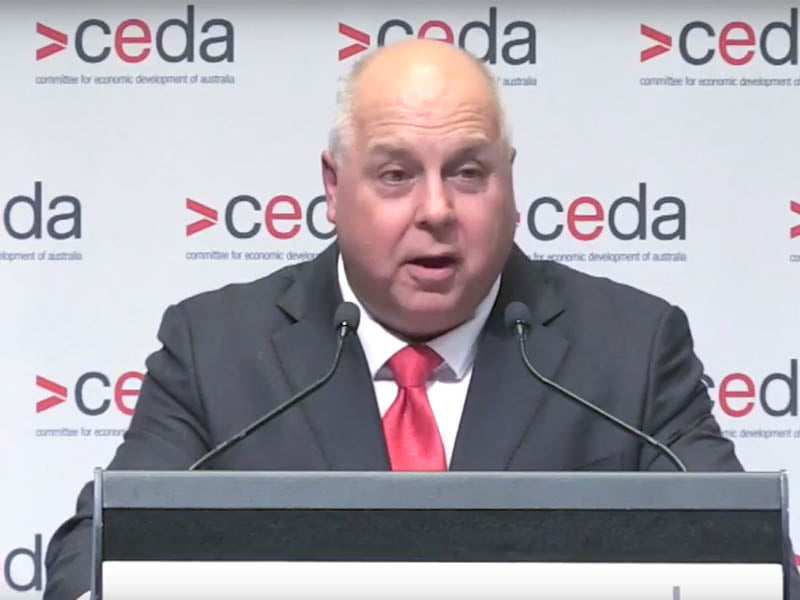The Victorian budget will provide further funding for local tech companies and improve the talent pipeline in the state, Minister for Innovation Philip Dalidakis said.
While lacking many new initiatives focusing directly on the tech and startup sector, Tuesday’s state budget provided tax relief and more improved funding opportunities for Victorian players, the Minister said.
There are two key areas in the budget for the local tech community, Mr Dalidakis said.

The first is a $90 million reinvestment to “attract private sector investment and job creation, and protect existing businesses”, used by the Victorian government to lure large tech firms like Slack and Zendesk to Melbourne.
The funding boost will no doubt see the government emboldened in its attempts to attract global tech players to its state.
“The reinvestment in the investment facilitation of $90 million is a fantastic start in terms of continuing to not just attract international talent but to support local businesses to stay here and grow locally,” Mr Dalidakis told InnovationAus.com.
The second key facet for the tech world, Mr Dalidakis said, is the change to the payroll tax threshold from $575,000 to $650,000, which has been brought forward to July next year.
For companies operating in regional Victoria, payroll tax has also been reduced by 25 per cent.
“For startups in particular, which are in the very early stages of growth, they will see themselves largely exempt from payroll tax for a little bit longer. And startups in rural and regional Victoria will be paying the lowest amount of payroll tax anywhere in the country,” he said.
“That will again hopefully create a greater incentive for our startups to be able to build and scale-up wherever they’re located,” he said.
The Victorian budget as a whole focused on safety and jobs growth, Treasurer Tim Pallas said.
“This budget will stimulate statewide employment growth and drive private sector investment. It will secure today’s jobs, and create tomorrow’s. This is a government that values it relationships with business.
“We want to reduce impediments to their growth so they can develop their operations, expand into new markets and create new jobs,” Mr Pallas said.
Mr Dalidakis said most of these big pillar items included will have a positive impact on the Victorian tech community.
“There’s a lot in there, and I think the $90 million is a tremendous beginning. There’s still a lot of blue sky from where I’m sitting, and we can’t not reflect on how far we’ve come in the last two years and how much further we’ve got to go,” he said.
The state’s large investments in education, skills and training will help to address the talent shortage in Victoria, he said.
“It’s the intangibles that are so important in supporting the sector. The huge investment into skills and training is just as important in terms of providing a pipeline of people that can work in the tech and startup sectors, as much as if I have programs and policies that enable me to dish out cash,” Mr Dalidakis said.
“The two areas that government has the most influence over in helping startups is access to capital and access to talent, and that’s closely intertwined with the cost of living, access to affordable housing and access to good public transport.”
Along with tax cuts to regional businesses, the budget also includes a $4 billion package for regional Victoria, including $45 million to improve digital infrastructure like Wi-Fi, mobile and the Internet of Things.
“Everything that we’re doing can fit into the puzzle about making it easier to both work and live in rural Victoria, or live and commute from rural Victoria. It’s not a one size fits all approach, you can see strategically how each part fits in with the other.
“We’re trying to really grow our regions so they can share in our success, in Victoria’s success,” Mr Dalidakis said.
There are also a number of digital transformation projects announced in the budget that could provide opportunities for local tech firms, including $88.8 million to modernise the state’s energy system, a $69.2 million boost to the biotech industry, an overhaul of the Supreme Court of Victoria’s tech systems and a $5 million upgrade of ACMI.
“There’s quite a lot of funding in the budget within the digital economy sector. I look forward to trying to use that money as best as we can and get the best outcomes we can regardless of where you live,” Mr Dalidakis said.
“I’ll be speaking with other Ministers about what we can do about local procurement. I’ve been keenly watching the work that [Minister for Digital Transformation] Angus Taylor has done at the federal level in the space. If there’s success there, we’ll look at trying to replicate that in Victoria.”
Do you know more? Contact James Riley via Email.

